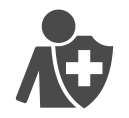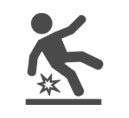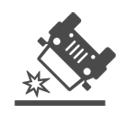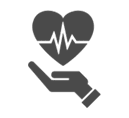San Diego Belviq Recall Or Belviq Withdrawal Lawyer
- 550+ Google 5-star reviews
- $1Billion won over 15 years
- Won’t settle for low offers, not afraid to fight for max value
Get a Free Case Evaluation
No fees until we win!
All San Diego Case Types

Personal Injury

Brain Injury

Car Accident

Slip & Fall

Truck Accident

Wrongful Death
San Diego Belviq Recall Or Belviq Withdrawal Lawyer
SAN DIEGO’S TOP TRIAL AND ACCIDENT LAWYERS
WHAT DID THE FDA REQUEST AND WHAT DOES IT MEAN?
On February 13, 2020, the FDA announced two developments in its assessment of the weight lost drugs Belviq and Belviq XR:
- The FDA formally requested drug manufacturer Eisai Inc. to withdraw Belviq and Belviq XR from the market; and
- Eisai promised to withdraw these drugs immediately.
The FDA further advised PATIENTS TO IMMEDIATELY STOP TAKING THE DRUG and carefully discard any unused doses. Many users of Belviq have been questioning whether this constitutes a Belviq recall, or how a voluntary withdrawal from the market differs from a Belviq recall, if it differs at all.
Here, we will examine what the FDA’s statement means, and what it may tell us regarding the risks of Belviq.
WHAT IS THE FDA’S ROLE IN DRUG RECALLS AND REQUESTS FOR WITHDRAWAL?
THE FDA’S SUPERVISORY POWER
The FDA is the Food and Drug Administration of the United States. Within the FDA, the Center for Drug Evaluation and Research (“CDER”) approves medications, conducts trials, and makes recommendations on items to be removed from market.
WHAT IS A RECALL?
The FDA defines a drug recall as follows: A drug recall is the most effective way to protect the public from a defective or potentially harmful product. A recall is a voluntary action taken by a company at any time to remove a defective drug product from the market. Any recall must implement a formal Recall Plan. This plan must also include a Recall Letter to be sent out to affected persons. This Recall Letter must convey:- That the product in question is subject to a recall.
- That further distribution or use of any remaining product should cease immediately.
- Where appropriate, that the direct account should in turn notify customers who received the product about the recall.
- Instructions regarding what to do with the product.
DOES THE FDA DIRECTLY RECALL DRUGS?
No. By definition, a recall is a voluntary action taken by a company to remove a drug product from the market. Drug recalls may be initiated on a company’s own initiative or by FDA request. In short, only a company can “recall” its own drug. A recall is an alternative to an FDA-initiated court action removing or correcting violative products distributed by a manufacturer. A recall may be undertaken voluntarily and at any time by manufacturers and distributors, or at the request of the FDA. A request by the FDA that a firm recall a product is reserved for urgent situations and is directed to the firm that has primary responsibility for the manufacture and marketing of the product that is to be recalled. A recall does not include market withdrawal or a stock recovery. A market withdrawal, as addressed further below, is a firm’s removal of a distributed product.THE FDA’S ROLE IN DRUG RECALLS
Just because the FDA does not directly issue the recall for a drug does not mean it does not play a role. The FDA is often the initiator of the recall process, and plays an important supervisory role throughout. The FDA oversees the company’s strategy and assesses the adequacy of a drug manufacturer’s recall. Perhaps most importantly, the FDA classifies the recall. This means the FDA assigns a rating to each recall. This important step alerts consumers to the urgency and danger associated with any recall. The FDA uses three recall classifications, known generally as Class I, Class II, or Class III. The FDA defines these as follows:- Class I: A dangerous or defective product that could cause serious health problems or death.
- Class II: A product that might cause a temporary health problem, or pose slight threat of a serious nature.
- Class III: A product that is unlikely to cause any adverse health reaction, but that violates FDA labeling or manufacturing laws.
OTHER ACTIONS THE FDA CAN TAKE TO REMOVE ITEMS FROM CIRCULATION
Other than requesting a formal recall, the FDA has several other ways it can request drug manufacturers make corrections or remove drugs from circulation. These include:- Correction: the repair, modification, adjustment, relabeling, destruction, or inspection (including patient monitoring) of a product without its physical removal to some other location.
- Removal: the physical removal of a product from its point of use to some other location for repair, modification, adjustment, relabeling, destruction, or inspection.
- Stock Recovery: the correction or removal of a product that has not been marketed or that has not left the direct control of the manufacturer, i.e. the device is located on the premises owned, or under the control of, the manufacturer, and no portion of the lot, model, code, or other relevant unit involved in the corrective or removal action has been released for sale or use.
WHAT IS A WITHDRAWAL FROM MARKET?
The FDA defines a market withdrawal as: A firm’s removal or correction of a distributed product which involves a minor violation that would not be subject to legal action by the FDA. On its face, this may sound less serious than a recall. However, the FDA has made very clear that it believes the risks of taking Belviq outweigh the benefits, and has asked Patients to stop taking the drug. These warnings sound very similar to the criteria used for a Class I recall.THE POTENTIAL RISKS OF TAKING BELVIQ
In February, the FDA announced several significant health concerns regarding the use of Belviq. A 5-year trial found people taking these drugs were more likely to develop several types of cancer. Compared to patients taking a placebo, Belviq patients had an increased rate of multiple types of cancer such as:- Pancreatic Cancer
- Colorectal Cancer
- Lung Cancer
- That the product in question is subject to a recall (here, the FDA issued a public notice);
- That further distribution or use of any remaining product should cease immediately (such as withdrawing Belviq from the market);
- Where appropriate, that the direct account should in turn notify its customers who received the product about the recall (here, the FDA asked prescribing doctors to call patients); and
- Instructions regarding what to do with the product (here, the FDA instructed patients to destroy unused doses.)
A WITHDRAWAL CUTS OFF THE SUPPLY OF BELVIQ TO PHARMACIES
The most notable factual consideration is that, unlike a medical device, there is little need to actively retrieve or replace Belviq. By asking Eisai to withdraw Belviq from the market, new bottles of Belviq are effectively immediately out of circulation. Belviq is available by prescription only. This means Belviq is not littering store shelves or available in bulk to consumers. Because patients must take Belviq daily, by cutting off supply lines, Belviq will quickly become unavailable.THE FDA SEEKS TO PREVENT FURTHER PRESCRIPTIONS
The FDA has also issued warnings to doctors, advising them of the risks of this drug. The FDA can reasonably expect doctors to follow the FDA’s advice and cease renewing prescriptions and/or immediately advise their patients to stop using Belviq. Again, this action by the FDA prevents any future Belviq pills from getting into circulation.THE FDA SEEKS TO PREVENT PATIENTS FROM CONTINUING TO USE BELVIQ
By asking patients to stop using the Belviq in their possession, the FDA seeks to discontinue use. Effectively, this will end use of Belviq before the supply lines for Belviq have run their course.WITHDRAWAL FROM MARKET HAS THE SAME EFFECT AS A BELVIQ RECALL
The FDA reserves the most serious type of recall for drugs that “could cause serious health problems or death.” Here, the FDA has announced that taking Belviq and Belviq XR could increase the risk of cancer—easily a serious health problem. So why has the FDA not asked for a recall? The simple answer likely is that it just did not need to do so. As outlined above, because Belviq is a regulated substance, the FDA is effectively able to achieve many of the same goals of a recall by simply asking for a withdrawal from the market. Unlike a medical device that may need a surgical procedure to remove, or food items that may be lingering in persons’ homes, the FDA can remove prescription drugs like Belviq from circulation through the withdrawal process. This allows quick and effective action with minimal delays.HOW OFTEN ARE DRUGS WITHDRAWN FROM THE MARKET?
Not very often. Despite the broad criteria used for withdrawing items from the market, the FDA still uses this tool very sparingly. From 1994 to 2015, the FDA reported only 215 incidences where it determined a drug should be withdrawn from market. Of these, only 11 of them, or 5.1 percent, included the FDA’s determination that the drug should be withdrawn from sale for safety or effectiveness reasons. Reports issued by the FDA indicate only 600 drugs have ever been withdrawn for these reasons. Belviq now joins this very narrow list.LEGAL RIGHTS OF PATIENTS AND CONSUMERS
According to several reports, Eisai has an approximate annual revenue of $5.8 billion and over 10,000 employees throughout the world. Companies this big and powerful understand how to defend themselves and will exercise their legal rights to do so when challenged. People who believe they have been harmed by Belviq or Belviq XR should make sure they obtain proper legal advice before deciding how to proceed. Defendants in these lawsuits will employ highly skilled defense attorneys given their vast resources. Consumers need to counteract that form of help with legal help of their own. If you or someone you love has been harmed as a result of this medication, you need to seek the help of Belviq lawyers who understand what it takes to hold even the largest corporations accountable for the harm they inflict on consumers. U.S. News and World Report named Gomez Trial Attorneys a top law firm, including naming the firm and its attorneys “Best Lawyers”, “Super Lawyers”, and “Lawyer of the Year”. Gomez Trial Attorneys have been named Top Lawyers in a variety of fields, including products liability and mass torts. Over the past ten years, our San Diego personal injury attorneys have collected over $350 million in verdicts and settlements with more than 60 awards of more than one million dollars each. Gomez Trial Attorneys are experienced in taking on big Pharma and drug manufacturers, regardless of their size. Contact Gomez Trial Attorneys today to schedule a free initial consultation.Our Process... Easy as 1. 2. 3!
Call Us
We will determine your case and submit
We get to work
You will get regular update from us
Win
Collect your compensation

550+ 5 Star Reviews
-
“John helped me find doctors, he referred me to his neurologist, his physical therapist, I mean, anything I needed he was right there, every step of the way. I couldn’t have asked for a better result from all of this, I would absolutely recommend Gomez Trial Attorneys.”
-
“During the time I was working with Gomez Trial Attorneys, they treated me very, very well. 100% of the time, they believed me, and they were very compassionate. They felt sorry for what happened and they understood the therapy process.”
-
“They held my hand the whole time and kept me in the loop every aspect of my case which was very refreshing to me. They helped me get my settlement offer as fast as possible and I was able to keep my farm”
-
“The Gomez experience was the best experience it could be for me really, only positive things to say. They really were there every step if the way. Thanks to Gomez Trial Attorneys my dad is able to support my family as a single father”
-
“He opened the door for me to join his firm to help other brain Injury survivors and I never met another firm who is like this who was so understanding and caring who took the extra step and walked the extra mile with their clients and this is the best”
-
“I am very satisfied with the outcome with Gomez and I would definitely recommend Gomez to anybody, we tell people all the time, Get Gomez! They are really thorough with everything and they make you feel real comfortable.”
-
“Just helped us through, guided us through, I kept notes all those years, we had questions all the time and they would always keep us informed of what was going on. They just unlayered it, layer by layer, I’ve never seen anything like them. Thank God for them.”

